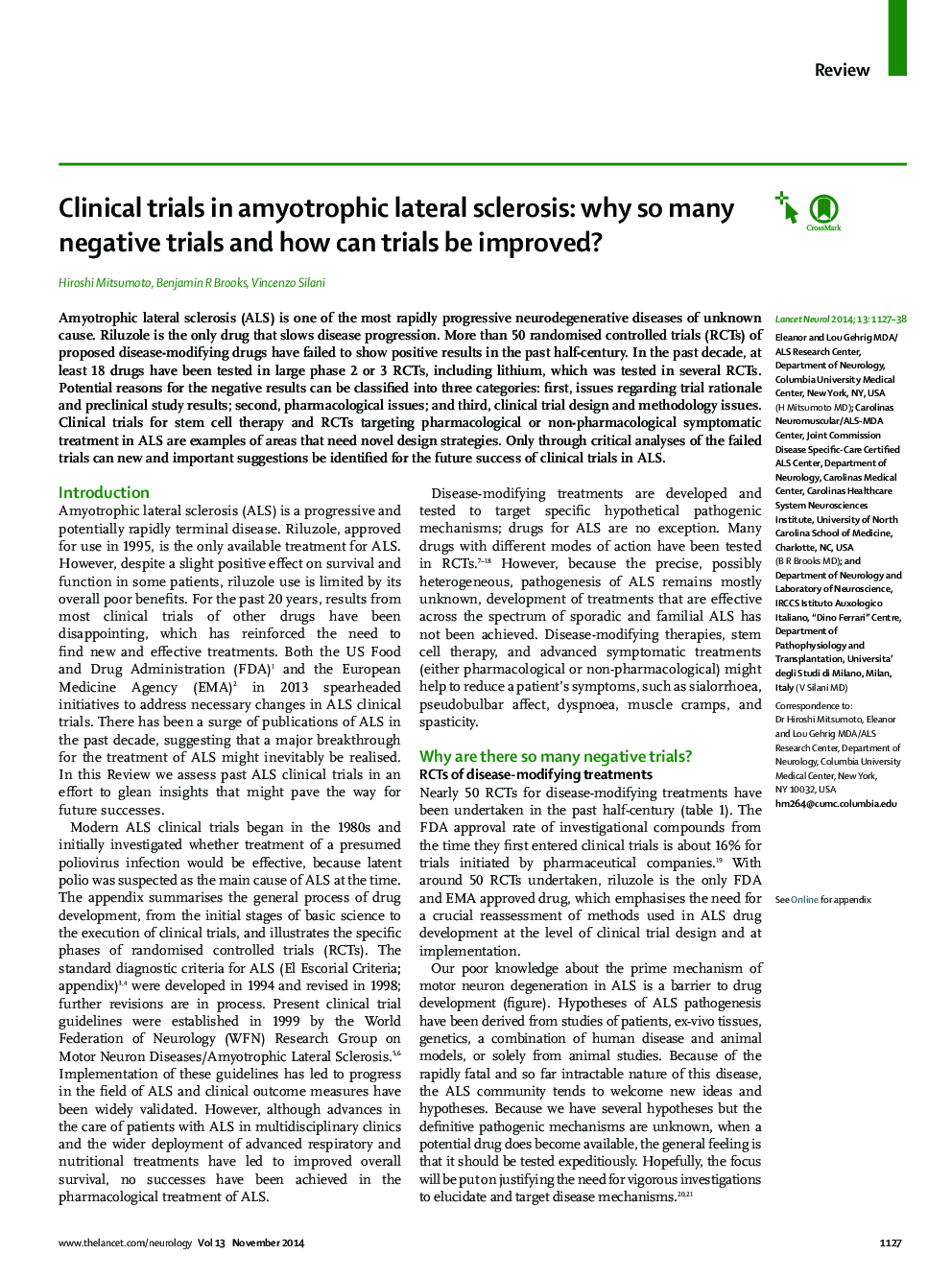| Article ID | Journal | Published Year | Pages | File Type |
|---|---|---|---|---|
| 3066543 | The Lancet Neurology | 2014 | 12 Pages |
SummaryAmyotrophic lateral sclerosis (ALS) is one of the most rapidly progressive neurodegenerative diseases of unknown cause. Riluzole is the only drug that slows disease progression. More than 50 randomised controlled trials (RCTs) of proposed disease-modifying drugs have failed to show positive results in the past half-century. In the past decade, at least 18 drugs have been tested in large phase 2 or 3 RCTs, including lithium, which was tested in several RCTs. Potential reasons for the negative results can be classified into three categories: first, issues regarding trial rationale and preclinical study results; second, pharmacological issues; and third, clinical trial design and methodology issues. Clinical trials for stem cell therapy and RCTs targeting pharmacological or non-pharmacological symptomatic treatment in ALS are examples of areas that need novel design strategies. Only through critical analyses of the failed trials can new and important suggestions be identified for the future success of clinical trials in ALS.
